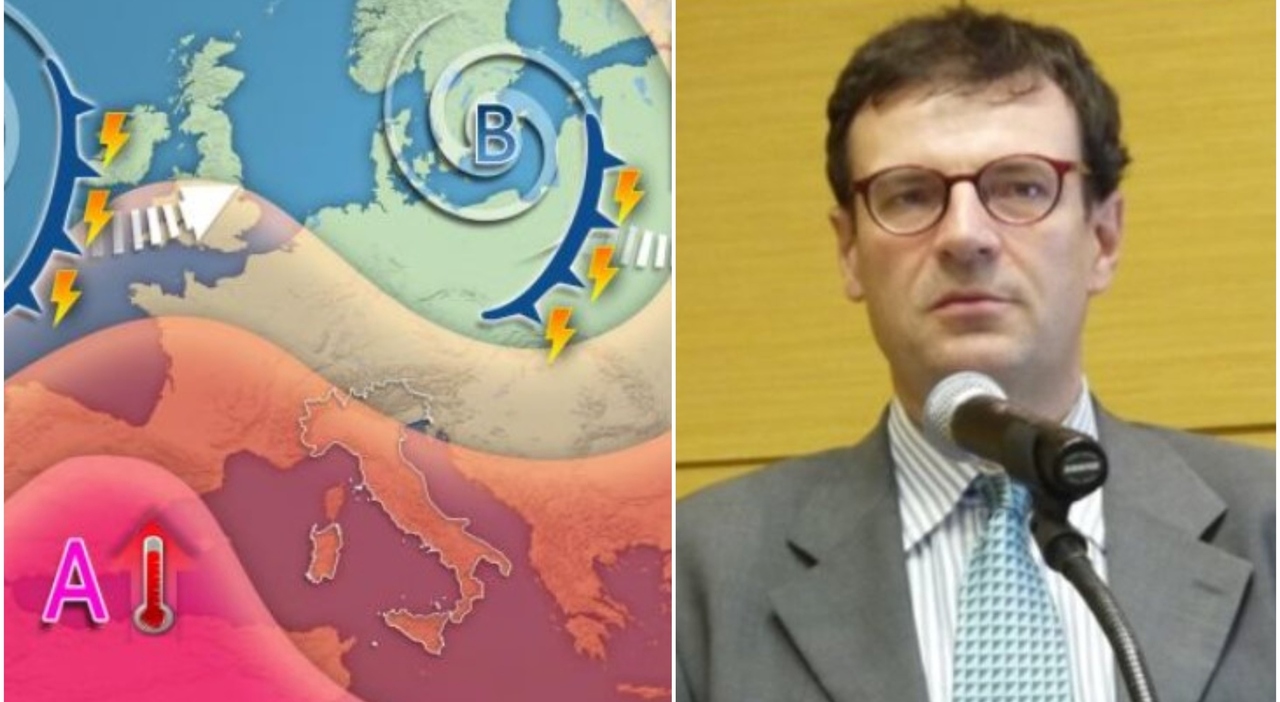In July, the symbolic value of 1.5°C of the Paris Agreement was already largely exceeded in certain regions of the world, and was nearly missed globally. The day in which this value will be reached in a stable manner could be much closer than we think, perhaps already in the first years of the next decade”. The analysis of is dramatically lucid Claudio Cassardo, meteorologist of the University of Turin, which does not seem at all surprised by the recent data released by the European Union’s Earth observation service “Copernicus”, according to which the temperature July 2023 average was the highest ever recorded for any month, since there are scientific records. This latest finding is a further indication, if anything were needed, that the global warming process continues to advance.
Professor, did you expect last July to finally break the heat record?
“In fact, the month of July just ended set several new world records for heat. On a daily level, according to the ERA5 dataset calculated by the ECMWF (European Center for Medium-Range Weather Forecasts), the hottest day was August 13, 2016 (always a recent year), with 16.80°C. Well, of the 31 days in July, 21 exceeded this record, which has been updated four times, reaching the value of 17.08°C. The difference is 0.28°C, which may seem like a small number if you think about the scale of thermal variations in a single day, but it becomes enormous in terms of climate».
In what sense?
«If we look at the monthly scale, the figure is even more striking: in fact, in the ranking of the 30 hottest months globally in the ERA5 dataset, July 2023 with its average 16.95°C outperformed the previous hottest month, that was July 2019, in which 16.63 °C was recorded (0.32 °C less). Looking at the figure that lists these warmer months, in which the differences between one month and another are measured in a few hundredths of a degree, one can understand how singular this figure was. Comparing the monthly value to the thirty-year average 1991-2020, obviously still in relation to the month of July, we see that the anomaly is 0.72°C warmer. According to the first estimates, compared to the average of the months of July in the so-called pre-industrial period 1850-1900, the anomaly would be around 1.5°C».
If we look from the beginning of the year to July, have we broken any records?
Looking at the January-July period, the global average for 2023 is the third highest on record, at 0.43°C over the 1991-2020 period, compared to 0.49°C in 2016 and 0.48 °C in 2020. Considering that, both in 2016 and in 2020, the final months recorded a smaller anomaly due to the decrease in intensity of the El Niño phenomenon, while in 2023 an intensification of the same is expected, or at least stationary, it is possible that this gap will narrow between now and the end of the year».
And in Italy?
«The first estimates lead to a variable anomaly between just under 0.5°C in the Alps and just over 2°C on the southern tips of Sicily and Sardinia, with a possible average value around 1.2°C, clearly higher than the global average value, as proof of the strong intensity of the heat wave that hit our nation, especially as regards Sardinia and the southern regions, where temperatures above 40° were recorded for several days of the month C, even if the recent record of 48.8°C established two years ago in the Syracuse area has not been broken».
Any other curiosities to report?
“The thermal anomalies have not only affected the land, but also the oceans. Globally, sea surface temperatures in July were 0.51°C above the average for the period 1991-2020, and in particular the North Atlantic area recorded values above the average of 1.05°C» .
Read the full article
on The Messenger
